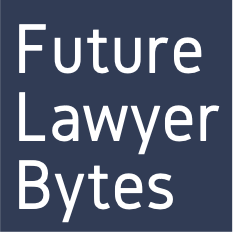LEGAL ETHICS & TECHNOLOGY

... A BASIC UNDERSTANDING OF THE PARTICULAR TECHNOLOGY USED BY THE LAWYER TO ASSIST IN THE CLIENT'S MATTER IS BECOMING THE NEW ETHICAL NORM.
For our inaugural Future Lawyer Bytes, we feature a quick chat with Alvin Chen. Director of the Legal Research & Development department at the Law Society of Singapore. Alvin will be moderating a panel on ‘Legal Ethics & Technology’. featuring legal practitioners and industry thought leaders who will share their insights on how technology will have an impact on lawyers’ ethical duties. Here, he shares some brief thoughts on how legal ethics interfaces with the use of technology in the modern era of legal practice, and whether lawyers’ codes of conduct will need to evolve against the backdrop of technological changes to the legal profession.
What is legal ethics, really?
It is common to view legal ethics as merely complying with a code of conduct – in Singapore’s case, the Legal Profession (Professional Conduct) Rules 2015 (“PCR 2015”). But legal ethics is really a form of applied ethics that seeks to address practical dilernmas that lawyers face.1Alvin Chen & Helena Whalen-Bridge. Understanding Lawyers Ethics’ in Singapore (2016. LexisNexis), at [1.1].
A well-drafted code of conduct therefore not only prescribes required professional standards, but also provides a sound ethical framework for lawyers to address common ethical dilernmas in practice, thus saving much time and effort that would be expended if they were to start from scratch to resolve ethical issues.
What challenges does the use of technology pose to lawyers’ ethics?
In modern legal ethics, a basic understanding of the particular technology used by the lawyer to assist in the client’s matter is becoming the new ethical norm. Many US states have adopted, in their lawyers’ ethics codes, an ethical duty of technological competence to ensure that lawyers are mindful of the benefits and risks of using relevant technologies. The precise contours of such a duty are. however. a matter of debate.
Some types of technology such as artificial intelligence (“Al”) will pose greater challenges because of their unique characteristics. For example, the opacity of how Al works and its self-learning capabilities will likely create ethical issues as to whether lawyers can properly supervise Al and competently provide legal services to the client. Current debates on the extent of human oversight needed to regulate Al can also be transposed to legal ethics. for instance, what degree of lawyer oversight is required over the use of Al in legal practice?
How will such challenges affect lawyers' codes of conduct, such as the PCR 2015, in future?
Codes of conduct usually deal with two issues: (1) the behaviour of lawyers; and (2) the impact of their services on clients.2Paula Boddington. Towards a Code of Ethics for Artificial Intelligence (2017. Springer) at p. 63. However. as Al becomes more sophisticated and more widely used in the legal profession, lawyers’ codes of conduct will have to take into account. among other things, whether Al has effectively superseded ethical obligations.
For instance, Rule 9(3)(a} PCR 2015 requires a lawyer to “inform the court or tribunal of every relevant decision, and every relevant legislative provision. of which the legal practitioner is aware, whether that decision or provision supports or rebuts the legal practitioner’s contentions before the court or tribunal” [emphasis added]. The day may come when Al technology can easily retrieve every court decision in every jurisdiction which is relevant to the issues before the court. In that scenario, Al would have effectively surpassed human capability. Would it then still be meaningful to place such an ethical obligation on the lawyer?
What are the possible approaches to amending lawyers’ codes of conduct to take into account technological change?
This is a complex question which will certainly be interesting for us to explore at the Colloquium. Certainly, the US has taken the lead in formulating an ethical duty of technological competence. Nevertheless, there is a long way to go in this algorithmic age. One approach may be to begin from first principles and develop a standalone section in the ethical code dealing specifically with the impact of technology on lawyers’ ethical obligations across the board. Another approach may be to identify specific legal practice domains where the use of technology is highly prevalent and to develop a framework of ethical principles and rules to address common ethical dilemmas arising in those domains.
Why can't we just extend/modify the provisions of the existing code of conduct (e.g. PCR 2015) to address the use of technology/Al?
Yes, this is another possible option (besides doing nothing at all!) and it may be the most pragmatic. But the jury is still out (pardon the use of this antiquated expression in the age of Al) on whether such an approach will be sufficiently comprehensive to address the unique characteristics of technology. especially Al. Given the unpredictability of Al outcomes, the ethical code may need to be regularly supplemented or refined to keep up with Al technological changes that impact on lawyers’ ethical duties. Moreover, if lawyers have no control over how Al algorithms learn or innovate, should they be held ethically responsible under existing codes of conduct which are premised on a reasonable standard of human control and supervision?

